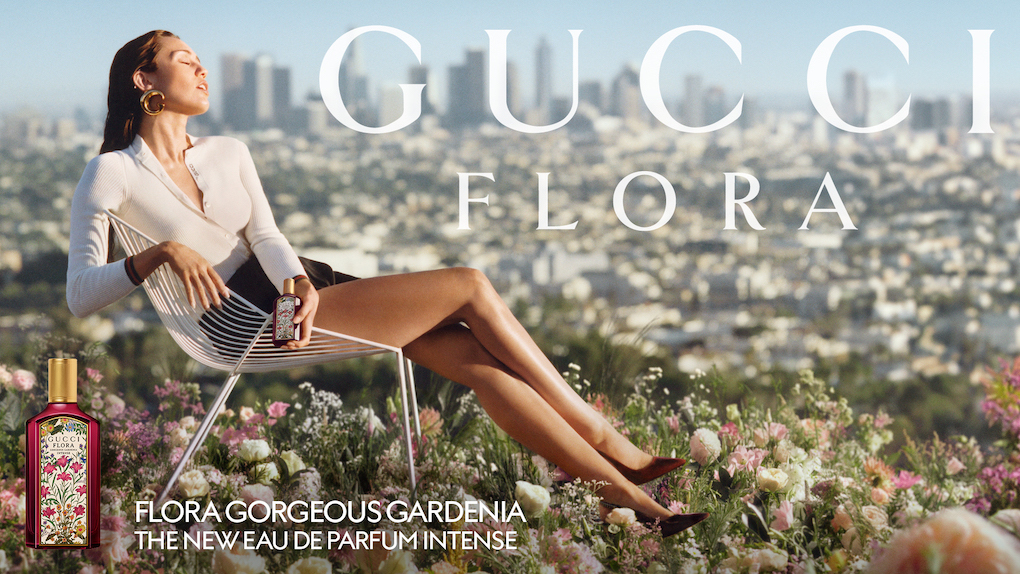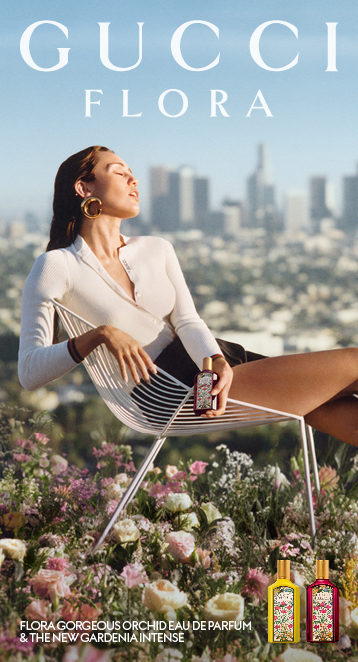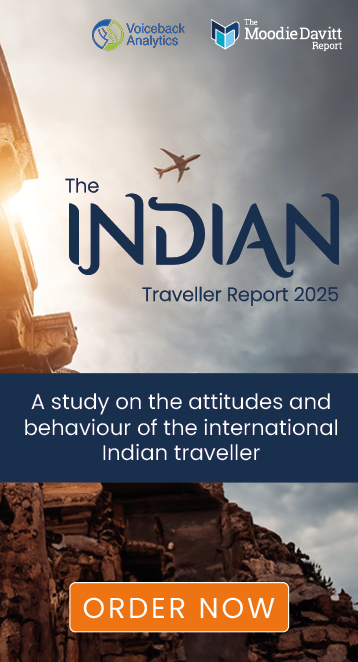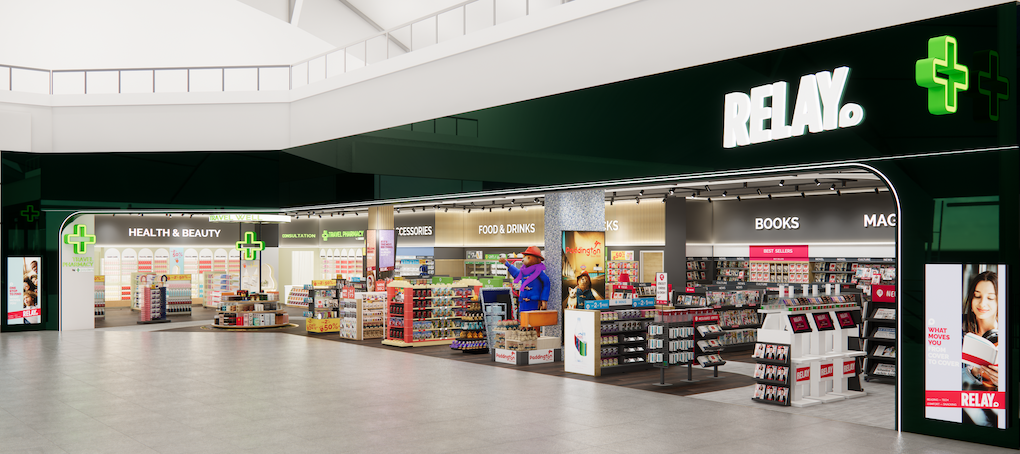
Coty’s first-quarter 2026 results were an inflection point for the beauty group as it delivered solid growth in travel retail amid a groupwide slide in revenues for the period ended 30 September.
Net revenues were down -6% on a reported basis and -8% like-for-like to US$1.58 billion, including a +2% foreign exchange benefit.
The business generated a US$1.02 billion gross profit and reported an adjusted gross margin of 64.5%, a decrease of 100 basis points year-on-year. This reflects lower sales as well as a 40 basis point headwind from tariffs.
During an earnings call, Coty Chief Executive Officer Sue Y. Nabi said the company remains “committed to reaccelerating our performance and doubling down on our strengths”, adding that “the early results from our recent operational interventions are promising”.
Her words signal Coty’s next strategic chapter: focusing on its core strengths in prestige fragrance and mists, refining its licence portfolio and maintaining fragrance leadership across price tiers from “US$5 to US$500”.

Asia recovery buoys travel retail
“Within our Global Travel Retail business, we saw solid growth this quarter, led by a recovery in Asia,” Nabi said.
She highlighted the early positive performance of BOSS Bottled Beyond, pre-launched as a travel retail exclusive before entering domestic markets. “Our BOSS Bottled Beyond launch is already resonating with consumers across markets. I’m excited to share that BOSS Bottled Beyond is on track to be the number two male fragrance launch of the fall in Europe, including the number one male fragrance launch in Germany in units, and the number one male SKU in Australia.
“The launch is elevating the Hugo Boss brand equity, strengthening our position in male fragrances and unlocking a significant opportunity in the USA, where BOSS Bottled Beyond is already the number six innovation despite limited historical presence,” Nabi added.

Coty Chief Financial Officer Laurent Mercier described the launch as one of Coty’s biggest fragrance successes to date: “This is such a big success that I believe it is going to translate into a stronger sell-in also for Q2. For us, it is really a big strategic bet, and it looks like it’s going to be very, very big, which will help us to increase our market share in the male fragrances, which are also booming.”
Nabi highlighted Coty’s standout Prestige sell-out in China which, including Hainan, now represents 3% of total sales. “Coty’s Q1 China sell-out grew +15%, more than double the market, even as our net revenues were lower due to destocking,” she said.
“Fragrances remain the fastest-growing category in China, and our sell-out was 1.5 times the market. In makeup, we grew at twice the market. And in skincare, we expanded at approximately ten times the market, fuelled by the momentum we’re building in Lancaster.”
These results, Nabi noted, “reflect the strength of our portfolio and targeted execution in the region”.
All eyes on Gucci

The Gucci licence was among the most closely watched developments this quarter. As reported, Kering and L’Oréal Group recently announced a €4 billion beauty agreement that will see L’Oréal acquiring Kering Beauty. The deal includes the beauty licence for Kering-owned Gucci, once the current licence with Coty expires.
Nabi said, “With the public announcement that the Gucci licence will no longer be part of our portfolio after its expiry, our focus for the next several years will be on overdriving the brands with the biggest long-term growth potential, building and amplifying our newly added licences and brands, and in parallel optimising the Gucci brand during its remaining term.
“The second critical point is that Coty maintains a top position in global fragrances,” she added.
“We remain a top three global fragrance player, with leading positions in both prestige and mass fragrances. In the highly attractive US$50 billion prestige fragrances market, Coty is a top three player with 12% market share.
“We’ve delivered similar momentum and success behind brands exiting the portfolio, as we grew Gucci Beauty by +61% between FY19 and FY25, at constant currency.”
Her sentiments were echoed by Mercier, who said: “The uncertainty over the last few years around the fate of the Gucci licence, resulting from public comments of the licensor, was a challenge for Coty, both for the organisation and for our reputation. It created questions about whether to build the brand in a strategic or tactical way, and about its role within our overall portfolio.
“Even without the Gucci licence, it’s important to state that we remain firmly in the top three for total global fragrances and for prestige fragrances. With this clarity on the fate of Gucci now, we will work to optimise the brand in a more tactical way until the last day of the licence, while focusing on accelerating the rest of our portfolio.
“Gucci is currently a sizeable brand within our portfolio, so the loss of the brand at expiry will mean some profit impact in the following year. To address this gap, we will be overdriving the rest of the portfolio while also addressing our cost structure.”
Commenting on a potential early acquisition deal for the Gucci licence with Kering, Mercier said: “There is no change to Coty’s existing licence or our ability to operate the Gucci beauty licence. All contractual rights remain in place, and we will continue to manage and operate Gucci beauty under the same structure already in motion.
“Overall, we continue to solve this amicably with Kering. Regarding a potential deal, as you can imagine, we are always open to evaluate any proposal if and only if this creates real value for the company.”
A balanced licence portfolio



According to Coty, its diversified structure and proactive licence renewals have mitigated concentration risk. “Today, 85% of our portfolio is either an owned brand, a perpetual licence which we view like an owned brand, or a licence with very long-term remaining duration of seven years or more,” Nabi explained. “We have also been prudent in ensuring that no single brand in our portfolio accounts for more than approximately 10% of our sales.”
As it gears up for the expiry of the Gucci licence, the company turns its focus toward its core designer and newly added luxury brands, including Burberry, Hugo Boss, Chloé, Marc Jacobs, Swarovski, Etro and Marni.
Mercier commented: “We have already grown some of our biggest brands at a fantastic pace in the last five years: Burberry +140%, Hugo Boss +33%, Chloé +70%, and Marc Jacobs +50%. We can now focus even more on expanding these brands while, in parallel, building our next stars with brands like Swarovski just as we have built Gucci.
“A successful licensing business depends on portfolio diversification and on minimising the license duration risk. In recent years, as you have seen, we have proactively renewed and significantly extended many key licences, including Hugo Boss, Marc Jacobs, Adidas and Davidoff. And all these for an additional 15 years-plus,” he added.
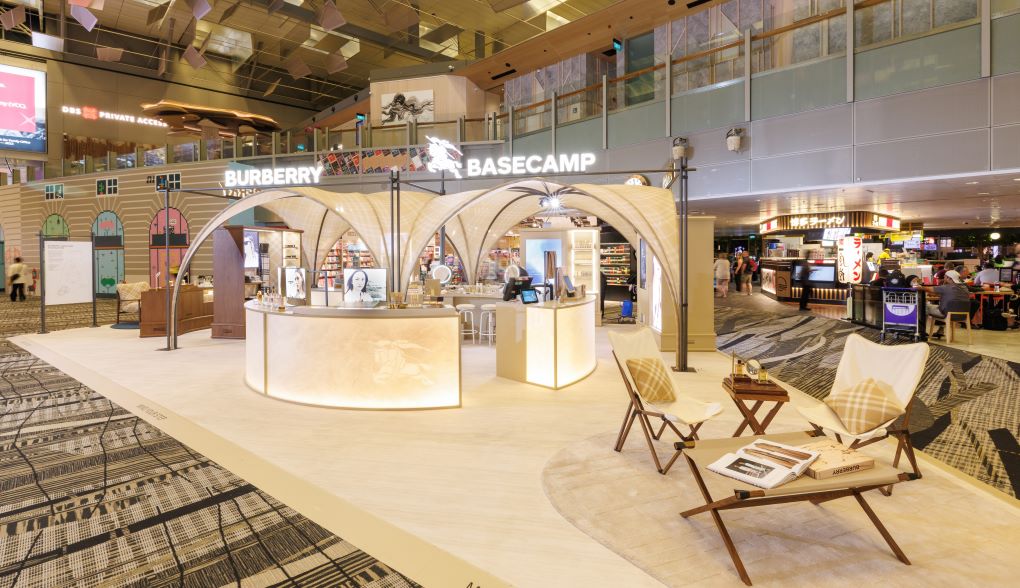
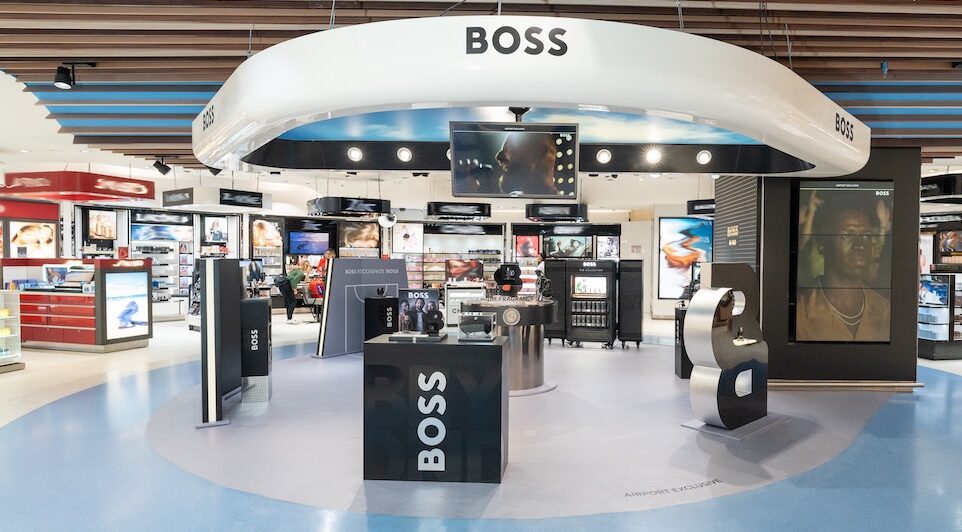
“The winners in beauty have been and will remain specialised beauty players like Coty,” Nabi stated. “In-housing beauty remains incredibly complex and costly for non-beauty players, reinforcing the appeal of the licensing model.”
During the earnings call, Mercier sought to dispel speculation around other potential divestitures. “I would also like to take this opportunity to stress that some of the delusional media rumours from recent months about Coty potentially exploring the sale of key fragrance brands are categorically false,” he said.
“We are committed more than ever to solidifying our position as a prestige beauty company with an emphasis on fragrance and scenting across price points, supported by best-in-class cosmetics and skincare capabilities. Our long-term fragrance brands are the backbone of this strategy.”
Ultra-prestige and fragrance mists

In this new era, Coty’s long-term strategy is anchored on becoming a prestige fragrance and scenting powerhouse. Nabi explained, “Coty has always been a best-in-class fragrance operator, and in this next phase, we are doubling down to become a fragrance and scenting powerhouse from US$5 to US$500.
“Two of the fastest-growing fragrance sub-segments are ultra-premium fragrances and fragrance mists, positioned at the high and low end of price points, respectively,” she added. “We see substantial room to grow in both ultra-premium and mists segments and are committed to capturing our fair share over time.
“This approach positions Coty to lead in emerging scenting opportunities, creating incremental growth platforms that extend the reach and relevance of our fragrance brands.”
Ultra-premium fragrances now represent over 10% of the prestige fragrance market but only 2% of Coty’s Q1 2026 sales, providing room for growth. “Coty’s ultra-premium fragrance collections delivered +17% sales growth in Q1,” Nabi said, citing strong performances from Chloé Atelier des Fleurs, Jil Sander Olfactory Series 1 and Infiniment Coty Paris.
She added, “This performance highlights our ability to capture growth at the high end of the market and reinforces our strategy to expand in segments where appetite is accelerating.”


At the other end of the spectrum, fragrance mists have proven highly incremental making up roughly 10% of the total fragrance market. Nabi said, “While our presence in mists was previously limited, recent launches under multiple brands have grown mist contributions to 1% to 2% of Coty’s Q1 FY26 fragrance sales.”
In recent months, Coty launched mist collections under Calvin Klein, Philosophy, Kylie, adidas Vibes, Nautica and Jawhara, with plans to launch mists across over a dozen Prestige and Consumer Beauty brands.
“Our patented mist launches are all off to strong starts,” Nabi noted. “Importantly, the results confirm that fragrance mists are incremental to the fragrance base business of each brand, boosting overall sales.”
She pointed to the example of Calvin Klein. “After only a few months in-market, our Calvin Klein mist collection of four scents is already the number four fragrance mist brand in Europe and the number one mist brand in Italy. Total Calvin Klein fragrance sell-out grew at a mid-single-digit percentage, with growth in both fragrances and fragrance mists.”
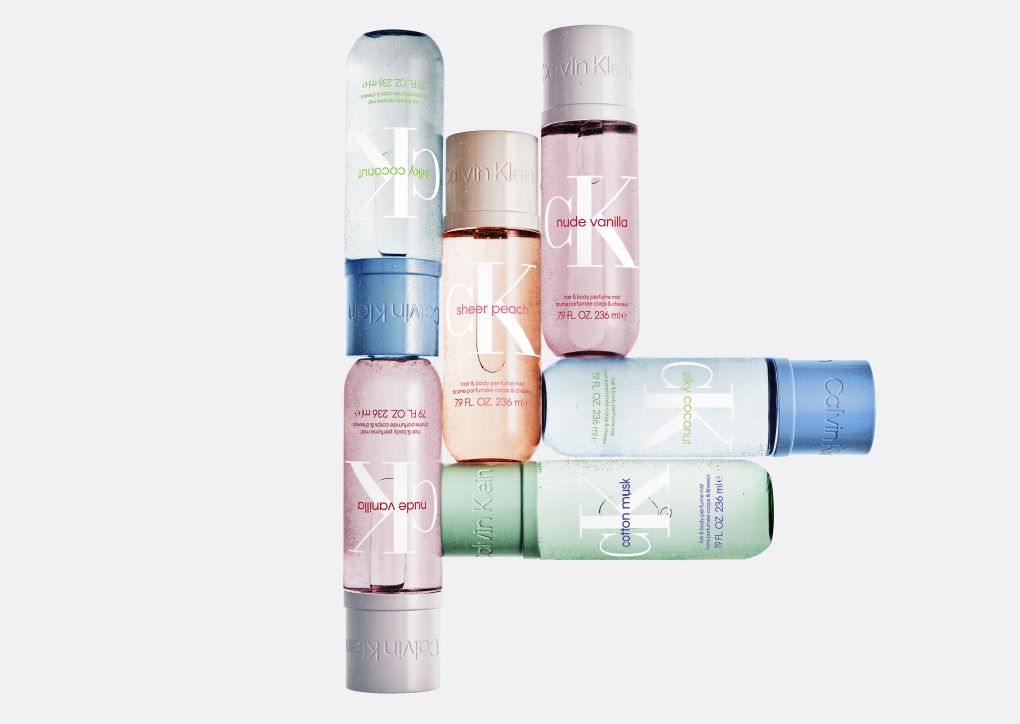
The layering trend is also driving Gen Z recruitment and discovery in travel retail. “The vibrant, modern packaging, on-trend scents and accessible price points make our mists stand out at key retailers, attracting Gen Z consumers and supporting the layering phenomenon, as our beauty advisors encourage pairing mists with traditional perfumes,” said Nabi.
“These mist launches showcase Coty at our best, spotting trends early, deploying them across our brands with agility and designing the products for profitability with comparable margins from the start.”
Mercier also pointed to the growing role of fragrance mists in Coty’s portfolio. He said: “The mists today are representing more or less 2% of Q1 net revenues in fragrances, which is big. Everywhere or every brand that launches its own mist is seeing a very strong halo effect on the base business, be it Kylie, be it Philosophy, or Calvin Klein that are the first to go to market. There are other brands arriving soon.” ✈






